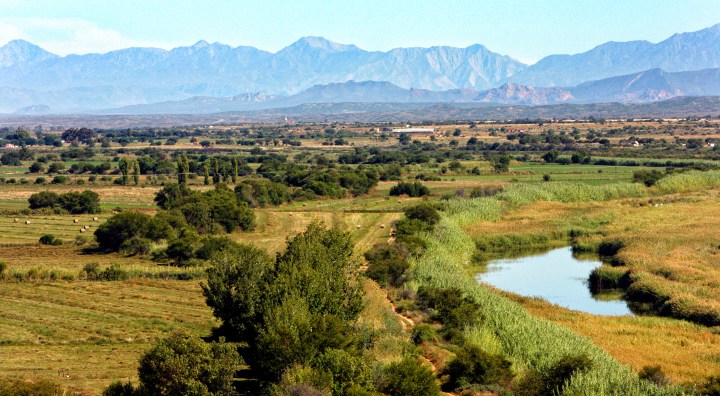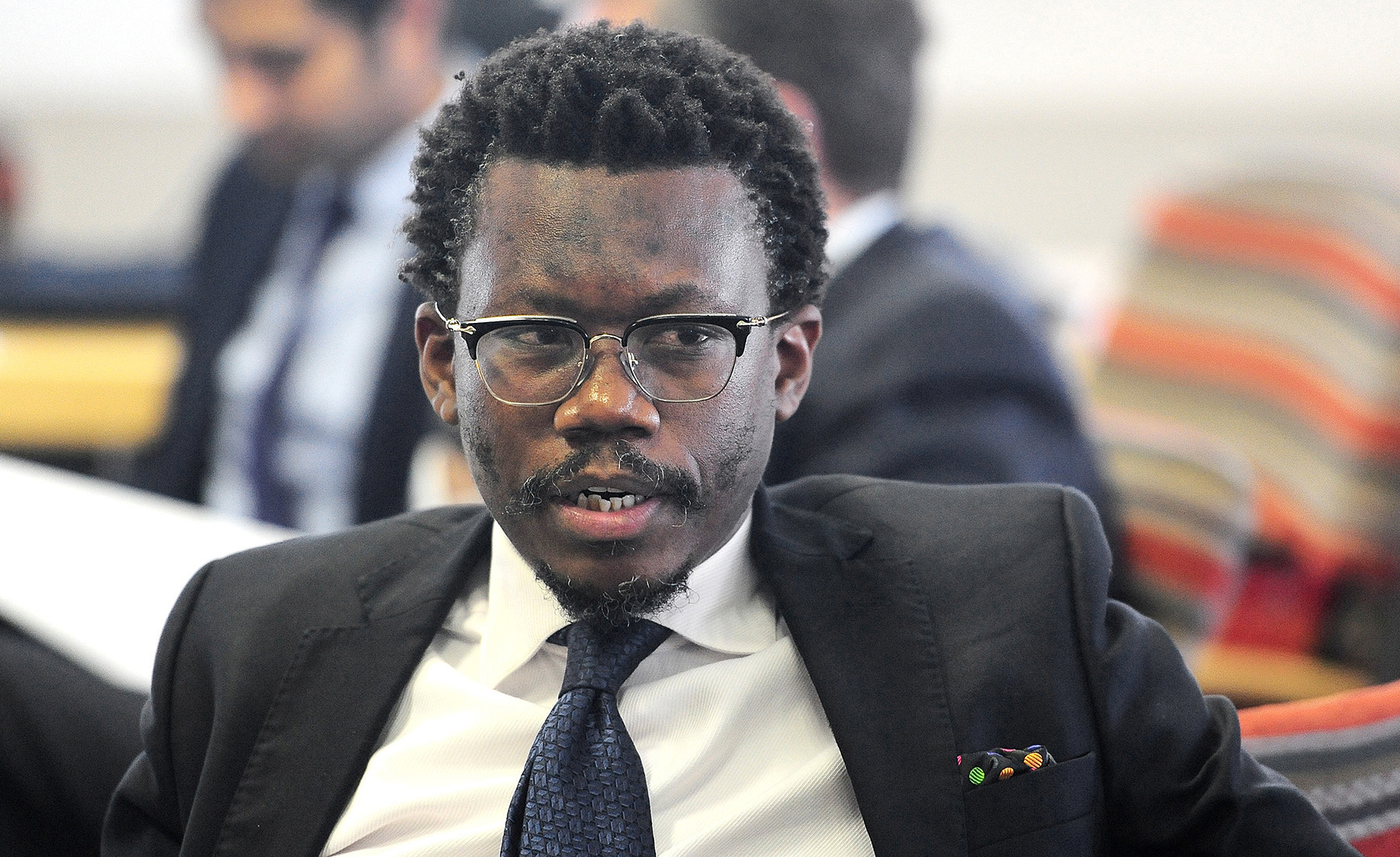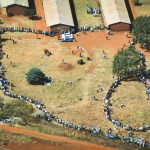DEBATE RAGES ON
Land equity a hot topic at the conference on South Africa’s Constitution

The National Conference on the Constitution held between 22 and 24 March 2023 grappled with the question of land rights, land reform and restoration that is not much closer to being resolved than it was 30 years ago.
“We have failed to inspire active citizenry in order to ensure the provisions of the Constitution are realised because they are not self enacting. Legislature has become a forum for pursuing party interests, not those of the people,” says Rev Frank Chikane.
“The Constitution gives a particular mandate to ensure there is land equity in our country” minister of Agriculture, Land Reform and Rural Development, Thoko Didiza told the national conference on the constitution on its last day as she kicked off a contentious discussion on what progress the constitution had made on ‘Land Reform: Restitution and Distribution’.
Didiza said that so far about 10 million hectares have been delivered for restitution and redistribution, but this did not include people acquiring land on their own or acquisitions of land from financial awards for restitution.
‘It’s not the system that’s flawed, it’s the translation of it’
According to advocate Tembeka Ngcukaitobi; “It’s not the system that’s flawed, it’s the translation of that system.” He highlights that only 79,000 applications for restitution in 1998 were received by the time of closure of the applications. He said South Africa’s issue of land injustice could not be resolved by restitution but only by redistribution because the restrictive nature of restitution was not meant to address forced removals.

Land activist Tembeka Ngcukaitobi says SA government should abandon its land restitution policy and focus on land redistribution. (Photo by Gallo Images / Sowetan / Thulani Mbele) (Photo by Gallo Images / Sowetan / Thulani Mbele)
Ngcukaitobi went on to say that in the last 29 years, government has struggled to promulgate coherent legislation or give effect to section 25 of the constitution which deals with the expropriation and compensation of land. He explained that the people who determine the price of land are property valuers and as a result there has been a struggle to distinguish price from value and compensation.
“What is needed is land for private use in order to address the land hunger problem, not state land… The expropriation bill will not help landless people, only the state. If the state is serious about getting people land it won’t be through this bill,” stressed Ngcukaitobi.
He also said a “big problem with communal land is chiefs, they have had a relationship with the state, enabling them to claim ownership of land, contradicting the interests of people. They have been pushing hard that community-owned land be registered in the name of chiefs, contradicting the vision of the Freedom Charter which says: ‘land belongs to those who work it’.”
‘Distortion and perversion of customs’
The Ingonyama Trust is fighting with communities because of arbitrary rules like women not being able to get land unless through a male relative, chiefs trying to extract rentals, commercial entities opening on land not to the benefit of the community but the trust. Ngcukaitobu said that this represented a “‘distortion and perversion of customs”.
“What we wanted within the constitutional framework was to break the over-concentration of power in chiefs. If we want to make progress, the expropriation mandate needs to be located in land affairs, not public works,” said Ngcukaitobi.
Dr Mathole Motshekga told the conference: “I have come to the conclusion Parliament has become irrelevant for the purposes of solving the land question because of people quarreling amongst themselves. Failure of government is not being able to resolve land questions which is at the heart of things … I see a lot of law students here and I want to work with them, law students will help us out of this problem because they have fresh thinking. The Current [land] arguments only argue for 13% of the land which is not an accurate representation of the restitution that needs to take place.”
‘Criminals are still trying to run this country’
Reverend Frank Chikane and Prof Siphamandla Zondi closed off the conference with some reflections on the way forward from the three days of deliberations on the Constitution. Chikane told attendees that “We must recognise that it is the Constitution that saved us from state capture and slipping into dictatorship … if anybody captures the intelligence services, the police, prosecution authority and there was an attempt to capture the judiciary, once you get the judiciary then you’ve got every target marked… we are still under enormous pressure – the criminals are still trying to run this country.”
“We have failed to inspire active citizenry in order to ensure the provisions of the Constitution are realised because they are not self enacting. Legislature has become a forum for pursuing party interests, not those of the people … instead of progressive realisation of socioeconomic rights we are regressing … to have 42 dysfunctional municipalities is just unacceptable” Chikane lamented. He said he wanted South Africa to go back to the development state which was abandoned along the way because of the interests of individuals rather than the constitution.
Zondi told the conference that what he had gleaned during conference deliberations is that there was a recognition that the country was in “a transition, an extended period of fluctuated movement, reversals, advancing, retreating and stagnation whether it was the structures, the adjudicating tools, how the judiciary has been forced to intervene and the extent of its independence, corruption not just of siphoning resources but corroding institutions meant to realise a better life.”
Zondi emphasised that government needed to remember the constitutional undertakings of healing the divisions of the past, building an open an democratic society and improving the lives of people. DM/MC




















 Become an Insider
Become an Insider
There must be a definition when we in SA use the word “Democratic”, as this implies certain values.
From the article it appears that their and what my mind computes, are entirely different things.
Democracy for me means the robust, messy yet responsive political and lived lives in the FR of Germany, or the British parliament (Order! Order!).
This understanding of “Democratic “ is polar opposite of say the Democratic People’s Republic of Korea, or the German Democratic Republic (East Germany) interpretation.
At least the People’s Republic of China didn’t bother and the Socialist Republic of Vietnam is the truthful, as the socialism leads to the Communist promised land.
The ANC has the National Democratic Revolution strategy, their path via socialism to the communist nirvana. Much of this based on the 1950s socialist Freedom Charter, mentioned above. The NDR is structured in phases: ensure ANC /SACP firmly in control, reduce and remove checks and balance, focus on economic freedom, mainly reduce the private economy.
This requires the elimination of say private healthcare, education, etc.
So now with this conference on our Constitution, the Freedom Charter seems to be the pivot to address shortcomings… ?
Instead of finding solutions where the Constitution has caused problems for our democracy (no direct mandated parliamentarians), the discussions are how the Constitution needs changes to better accomplish the National Democratic Revolution.